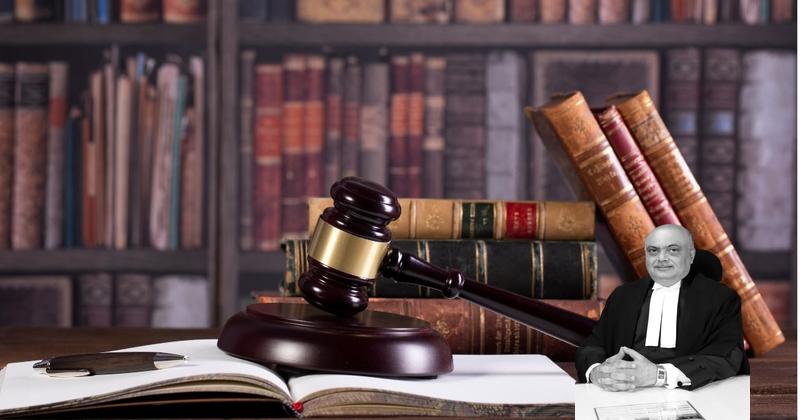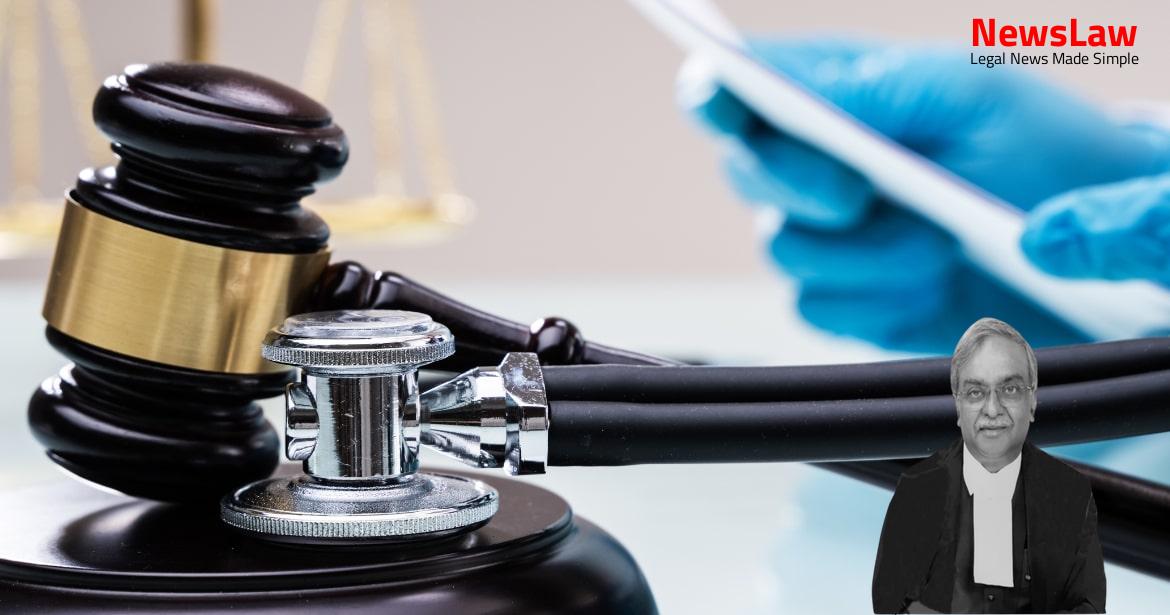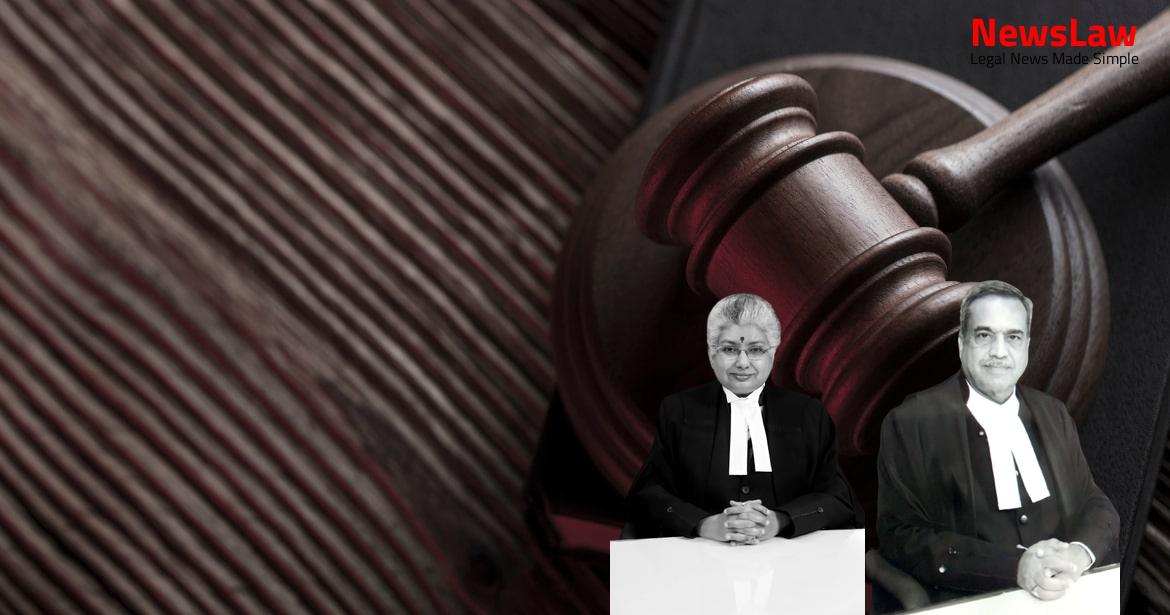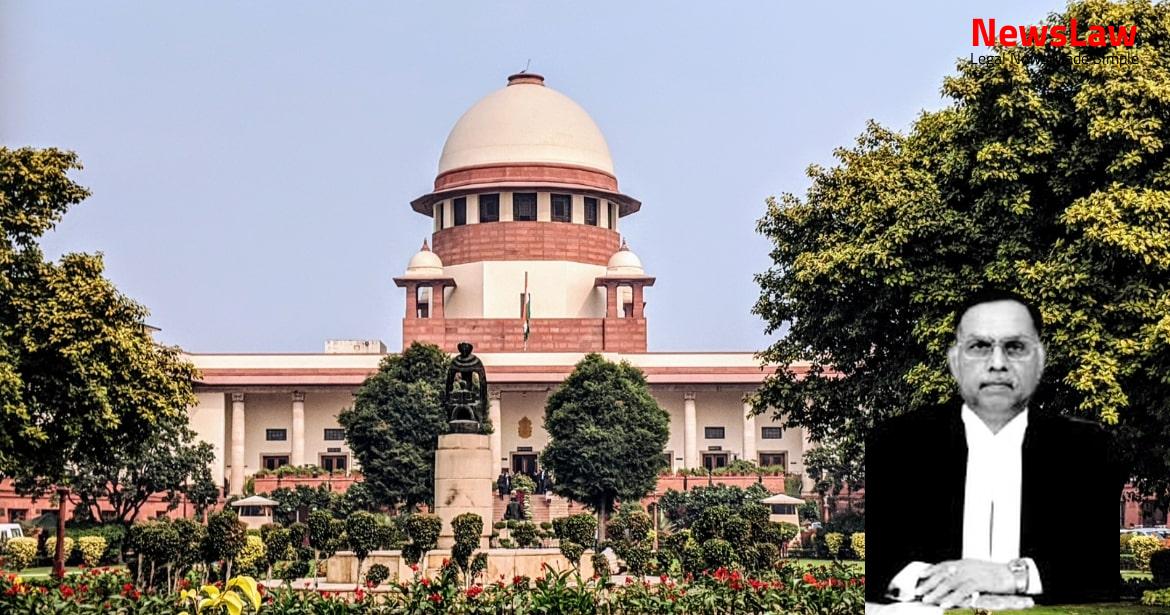The present Appeal is directed against the Final Judgment and Order dated 05.08.2019 (hereinafter re- ferred to as the “Impugned Judgment”) passed by the Madurai Bench of the Madras High Court partly allow- ing Criminal Appeal (MD)
Also Read: https://newslaw.in/supreme-court/jurisdiction-of-nclt-in-valuation-of-assets-a-case-analysis/
No 186 of 2019 (hereinafter 2 referred to as the “High Court”) filed by the Appel- lant. In appeal, the High Court partly allowed the Ap- pellant’s plea by acquitting the Appellant under Sec- tion 309, IPC while upholding the conviction under Section 302, IPC. Learned senior counsel for the Appellant submitted that even if it is assumed that she had tried to com- mit suicide along with her children by consuming poison, the same was due to sudden provocation which falls under Exception 1 to Section 300 of the IPC. Learned counsel for the sole Respondent-State opposing the prayers forcefully urged that the act(s) committed by the Appellant was cruel and brutal as young children were administered poison and put to death and rightly, the premature release of the Ap- pellant had been refused by the State. On merits, it was submitted that both the Trial Court and the High Court had carefully considered all aspects of the 6 matter, and not finding any merit, the High Court had upheld the conviction under Section 302 of the IPC. Here, although A was doing an unlawful act, he was not guilty of culpable homicide, as he did not intend to kill B, or to cause death by doing an act that he knew was likely to cause death.
Murder- Except in the cases hereinafter excepted, culpable homicide is murder, if the act by which the death is caused is done with the intention of causing death, or – 8 Secondly – If it is done with the intention of causing such bodily injury as the offender knows to be likely to cause the death of the person to whom the harm is caused, or – Thirdly – If it is done with the intention of causing bodily injury to any person and the bodily injury intended to be inflicted is suf- ficient in the ordinary course of nature to cause death, or – Fourthly – If the person committing the act knows that it is so imminently dangerous that it must, in all probability, cause death or such bodily injury as is likely to cause death, and commits such act without any excuse for incurring the risk of causing death or such injury as aforesaid. But if A, not knowing that Z is labouring under any disease, gives him such a blow as would not in the ordinary course of nature kill a person in a sound state of health, here A, although he may intend to cause bodily injury, is not guilty of murder, if he did not intend to cause death or such bodily injury as in the ordinary course of nature would cause death. Exception 1.—When culpable homicide is not murder.—Culpable homicide is not murder if the offender, whilst deprived of the power of self-control by grave and sudden provocation, causes the death of the person who gave the provocation or causes the death of any other person by mistake or accident. Illustrations (a) A, under the influence of passion ex- cited by a provocation given by Z, intention- ally kills Y, Z’s child. Exception 2.—Culpable homicide is not murder if the offender, in the exercise in good faith of the right of private defence of person or property, exceeds the power given to him by law and causes the death of the person against whom he is exercising such right of defence without premeditation, and without any intention of doing more harm than is necessary for the purpose of such defence. Exception 3.—Culpable homicide is not murder if the offender, being a public ser- vant or aiding a public servant acting for the advancement of public justice, exceeds the powers given to him by law, and causes death by doing an act which he, in good faith, believes to be lawful and necessary for the due discharge of his duty as such public servant and without ill-will towards the person whose death is caused.
Punishment for culpable homicide not amounting to murder- Whoever commits culpable 12 homicide not amounting to murder shall be punished with (imprisonment for life), or im- prisonment of either description for a term which may extend to ten years, and shall also be liable to fine, if the act by which the death is caused is done with the intention of causing death, or of causing such bodily in- jury as is likely to cause death, Or with imprisonment of either description for a term which may extend to ten years, or with fine, or with both, if the act is done with the knowledge that it is likely to cause death, but without any intention to cause death, or to cause such bodily injury as is likely to cause death. And thus, in that background, both with regard to mental status, social status, financial status and the attending 13 circumstances, the High Court therein had found it prudent to give a benefit by converting the convic- tion from Section 302, IPC to one under Section 304 Part I, IPC. Similarly, in the case of Suyambukkani ( supra ) immediately before the incident which led to his wife drowning herself with two children, besides there be- ing a history of her being abused and beaten up by the accused therein, the immediate provocation was that she was beaten up just a day prior to the fate- ful incident, and also in the morning and at lunch time, which provoked her to immediately try to take her life along with her two children by jumping into a well from where they were taken out. In the 15 present case, the positive recommendation of the State Level Committee for premature release of the Appellant, has been rejected by the State on the ground that the Appellant had administered poison to murder her two sons to continue her illicit relation- ship without any hinderance, which act was cruel and brutal in nature. Pausing here, the Court would note that the Ap- pellant never tried to murder her sons with a view to continue her illicit relationship. The Appellant is held entitled to the benefit of premature release as per G.O.(Ms) No 64 dated 17 01.02.2018 issued by the Home (Prison-IV) Department, under the signature of Additional Chief Secretary to Government. [ AHSANUDDIN AMANULLAH ] NEW DELHI MAY 04, 2023 18 ITEM NO.1501 COURT NO.2 SECTION II-C (For Judgment) S U P R E M E C O U R T
O F
Also Read: https://newslaw.in/supreme-court/unfair-charge-framing-a-legal-analysis/
I N D
I A RECORD OF PROCEEDINGS Petition(s) for Special Leave to Appeal (Crl.) No(s).369/2023 NAGARATHINAM Petitioner(s)
VERSUS STATE THROUGH THE INSPECTOR OF POLICE Respondent(s) ([HEARD BY: HON. AHSANUDDIN AMANULLAH, JJ.] IA No
19661/2023 – APPROPRIATE ORDERS/DIRECTIONS IA No 202464/2022 – EXEMPTION FROM FILING O.T.
19
Case Title: NAGARATHINAM Vs. STATE THROUGH THE INSPECTOR OF POLICE (2023 INSC 495)
Case Number: Crl.A. No.-001389-001389 / 2023



